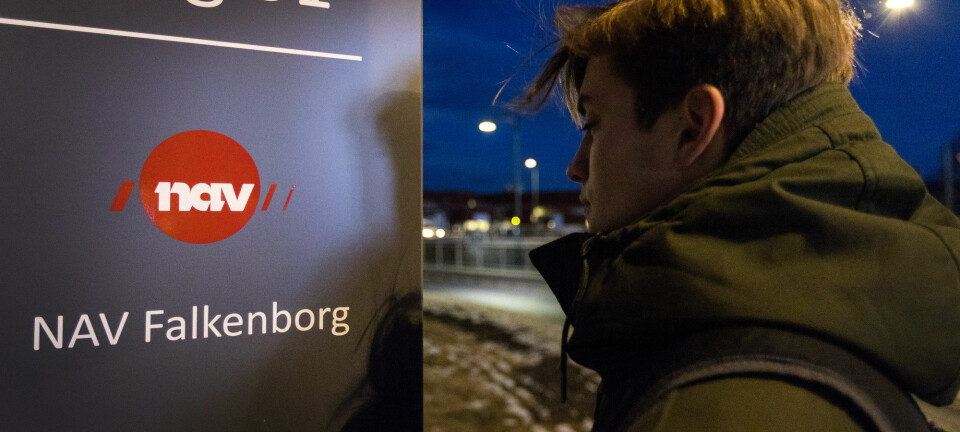
Fewer people in Norway are getting permanent jobs these days
More immigrants, “bike messenger jobs,” and what researchers call gig economics. Put together, these trends challenge traditional working life.
Today, many people are struggling to find a permanent position in the workplace in Norway.
Groups such as refugees, the disabled, the elderly, and people with a low level of education are persistently underemployed in Norway, despite the efforts of the authorities.
Others find themselves working in what scientists call the new gig economy.
The system works, but not for everyone
Norwegian working life works well in several areas. Most permanent employees have a high level of job security and their salaries are relatively high.
But an increasing number of people are unable to enter this working life.
The latest issue of Søkelys på arbeidslivet – Spotlight on the Workplace – is a thematic issue where social scientists have scrutinized what they call “the edge of working life.”
“Although Norwegian working life is considered to be working well, there are relatively large groups struggling to gain a foothold,” journal editor and researcher Ragni Hege Kitterød said when the thematic issue was presented at a recent webinar.
Refugees, the disabled, and the uneducated
Although there is much equality in Norwegian society, there are significant – and growing – wage differences in Norwegian working life.
Some groups in society also have significantly higher unemployment than others.
At least part of the problem is that there isn’t enough work at the edge of working life for the growing number of people who are referred to these kinds of jobs.
“Employment is significantly below average among groups such as refugees, the disabled, the elderly, and those with a low level of education,” Hanne Cecilie Kavli from the Fafo research institute said.
Is sick pay hiding unemployment?
Norway is a country that, in theory, has high employment and low unemployment.
But Norway is also a country where many people receive health-related benefits from the public sector.
Elisabeth Fevang, a researcher at the Frisch Centre at the University of Oslo, wonders whether health-related benefits, such as work assessment allowance, sickness benefits, and disability benefits, actually hide unemployment in Norway.
She believes that a more turbulent labour market, with increasing demands for productivity and efficiency, may increase the risk of developing health problems.
Difficulties related to health
At the same time, this labor market may make it more difficult for people with health problems to participate.
If you have health problems or other problems that prevent you from fully achieving the productivity requirements that are often set in the labour market, you may experience that Norwegian employers do less today than in the past to enable you to do your job.
This makes it more difficult for you to be part of the working life.
“There is no doubt that many of those who currently use health-related benefits have both the ability and the willingness to work, at least if conditions in the workplace are better facilitated. But employers have little incentive to make efforts for this group of workers,” Kavli noted.
Serious and unserious employers
“There is much to suggest that the Norwegian model does not work as well for everyone,” Anne Britt Djuve, a researcher at OsloMet, said.
If you belong to the part of the workforce that is struggling to get a good, safe job, you are more likely to end up on the edge of employment and in the gig economy.
At this edge of working life, various welfare state employees often operate – with a toolbox full of courses and requirements.
“And here you also find a wide variety of employers, ranging from the very serious to the completely unserious”, says Djuve.
Translated by: Ida Irene Bergstrøm
———
Read the Norwegian version of this article on forskning.no


































